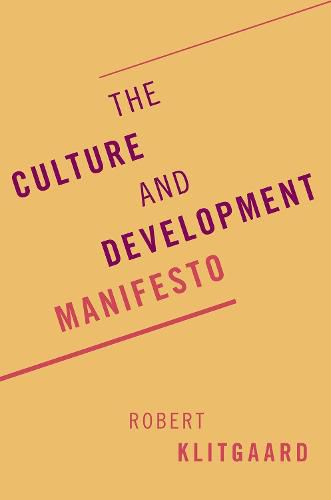Readings Newsletter
Become a Readings Member to make your shopping experience even easier.
Sign in or sign up for free!
You’re not far away from qualifying for FREE standard shipping within Australia
You’ve qualified for FREE standard shipping within Australia
The cart is loading…






With fascinating examples from around the world, this inspiring manifesto shows how to account for cultural diversity in reshaping economic and political development.Around the world, the realities of underdevelopment are harsh and galling, and current strategies are not working well enough or quickly enough. One reason, Robert Klitgaard argues in this pathbreaking book, is that the strategies don’t take cultural diversity into account. Gently but firmly, he shows how and why anthropology and cultural studies have not been effectively applied. But it need not be so.The Culture and Development Manifesto shows how to mobilize knowledge from and for the disadvantaged, the indigenous, and the voiceless. Looking beyond interactions between cultural contexts and particular projects, Klitgaard seeks new ways to think about goals, new kinds of alternatives, new and perhaps hybrid ways to implement or resist, and, as a result, new kinds of politics. In short, this remarkable book fundamentally re-envisions what development policy can be.
$9.00 standard shipping within Australia
FREE standard shipping within Australia for orders over $100.00
Express & International shipping calculated at checkout
With fascinating examples from around the world, this inspiring manifesto shows how to account for cultural diversity in reshaping economic and political development.Around the world, the realities of underdevelopment are harsh and galling, and current strategies are not working well enough or quickly enough. One reason, Robert Klitgaard argues in this pathbreaking book, is that the strategies don’t take cultural diversity into account. Gently but firmly, he shows how and why anthropology and cultural studies have not been effectively applied. But it need not be so.The Culture and Development Manifesto shows how to mobilize knowledge from and for the disadvantaged, the indigenous, and the voiceless. Looking beyond interactions between cultural contexts and particular projects, Klitgaard seeks new ways to think about goals, new kinds of alternatives, new and perhaps hybrid ways to implement or resist, and, as a result, new kinds of politics. In short, this remarkable book fundamentally re-envisions what development policy can be.